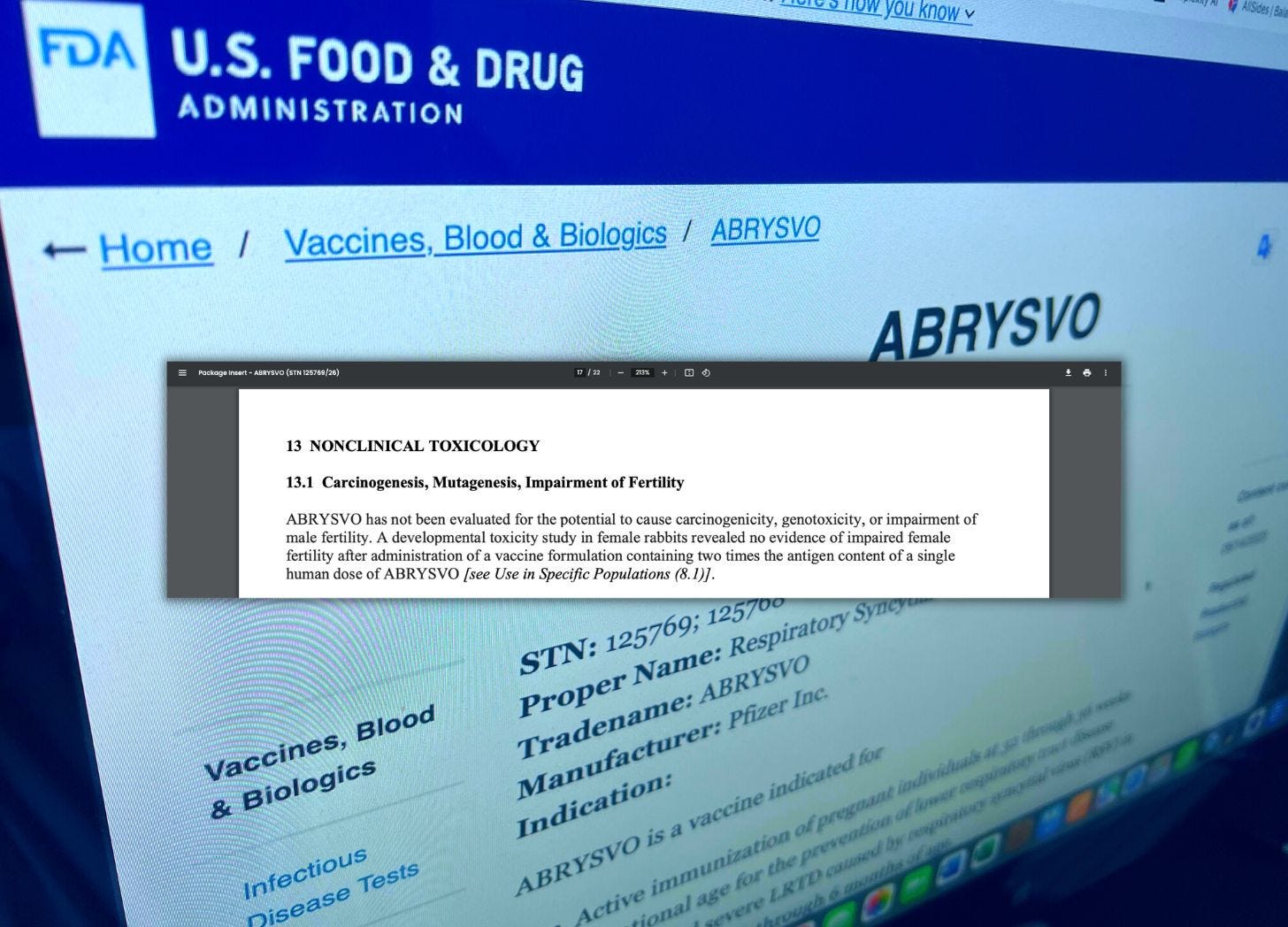Pfizer's RSV Vaccine for Pregnant Women Has 'Not Been Evaluated' for Cancer, Genetic Damage: FDA Package Insert
More than 150 pregnant women and children under two years old have been given the wrong RSV vaccine, according to CDC's VAERS.
The U.S. Food & Drug Administration (FDA) package insert for Pfizer Inc.’s RSV (respiratory syncytial virus) vaccine has not been tested for causing cancer or genetic damage.
Follow Jon Fleetwood on Instagram @realjonfleetwood / Twitter @JonMFleetwood
In August 2023, Pfizer’s ‘ABRYSVO’ RSV vaccine became the first of its kind to be approved by the FDA for use in pregnant women.
Section 13 of the shot package insert is titled “NONCLINICAL TOXICOLOGY.”
Section 13.1 is titled “Carcinogenesis, Mutagenesis, Impairment of Fertility.”
Under this headline, the insert reads: “ABRYSVO has not been evaluated for the potential to cause carcinogenicity, genotoxicity, or impairment of male fertility.”

You can download and read the full package insert here:
The statement indicates that there hasn’t been any specific testing or assessment conducted on Pfizer’s RSV vaccine to determine whether it has the potential to cause cancer or genetic injury.
Mothers cannot be certain that the RSV vaccine will not cause them to develop cancer or genetic disorders.
Follow Jon Fleetwood on Instagram @realjonfleetwood / Twitter @JonMFleetwood
Mothers and Children Given Wrong RSV Vaccine
Meanwhile, the Centers for Disease Control and Prevention (CDC) revealed last month that since the approval of RSV vaccines, the jabs have been incorrectly administered to both young children and pregnant women.
There have been at least 128 reports of pregnant women being wrongly given the GSK (GlaxoSmithKline Plc.) AREXVY RSV vaccine, which is only for adults over the age of 60 and not for expecting mothers, according to a CDC press release.
At least 25 children under two years old were also wrongly given an RSV vaccine that is only approved for adults.
Most of the children were under eight months old.
CDC Omits Vaccine Injury Details
The CDC’s press release indicated that some of those mothers and young children who received an incorrect vaccine experienced an injury (“adverse event”), but the agency failed to specify what those injuries were.
The omission of the harm caused to those mothers and children raises questions about the agency’s commitment to transparency.
Vaccine injuries and administration errors are monitored through the CDC’s Vaccine Adverse Event Reporting System (VAERS).
However, only “1% of vaccine adverse events are reported” to VAERS at all, according to a 2010 Department of Health and Human Services (DHHS) report conducted by Harvard doctors.
This means that vaccine-related injury rates could be 100 times greater than what VAERS reports.
Follow Jon Fleetwood on Instagram @realjonfleetwood / Twitter @JonMFleetwood


